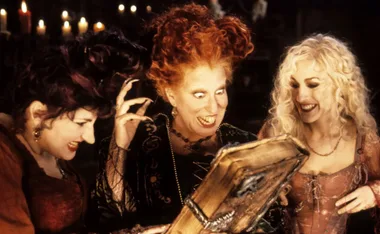It’s a day Sarbjit Athwal will never forget. She was folding laundry in the cramped house she shared with her husband in the heart of a small but close-knit Sikh community in west London, watching over her sister-in-law Surjit’s two children while she was at work, when her mother-in-law, Bachan Athwal, summoned her into the lounge for tea, biscuits and a family conference.
“As I took a seat at the table, I could sense something was wrong,” recalls Sarbjit, who is still visibly shaken by what she heard that day.
The imposing matriarch had gathered her two sons and daughter-in-law to announce her plans to murder Surjit Athwal, the wife of her son Sukhdave. “She’s bringing shame on the family,” said a stern, determined Bachan. “It’s decided. We have to get rid of her.”
Her seemingly ludicrous plan involved luring Surjit to India to attend a family wedding, where Bachan’s brother would “take care of things”.
“I was completely shocked,” says Sarbjit of the plot to kill her sister-in-law. “I remember thinking she might be angry, but she couldn’t be talking about murder. It’s not just something you go ahead and plan. But she seemed serious and in control, and Sukhdave — Surjit’s husband — was sitting there and didn’t say a word.”
On Friday, December 4, 1998, Sarbjit saw her sister-in-law for the last time as she waved her off on what had been painted as an exciting trip to India with her mother-in-law, a time to heal wounds and bond with the domineering “Mum” of the Athwal household.
Surjit was never seen again. The old woman had done it. She’d “got rid of” the family problem.
When she returned home alone from India to the bosom of her now smaller family, she expected life to carry on as usual. She expected to get away with murder.
Sarbjit Bath was born in 1969, in Hounslow, London, the eldest child of Sewa and Amarjit Bath, and right from her first cry was battling to please her parents.
“In many people’s eyes, that was the first time I brought shame on my family,” says Sarbjit. As a newborn, she was passed around her mother’s closest friends, when one woman said what everyone was thinking, “Congratulations … but it should have been a boy”.
It’s a sad and incontrovertible fact in the rigid Sikh community that a family’s future is all about sons. “A son is important because he carries the family name,” explains Sarbjit.
“I was the eldest; my parents were disappointed. And then, when my sisters were born, other families would say, ‘It’s a burden, the more girls you have’.”
Eventually, Amarjit had a son “and he got everything”, says Sarbjit with a wry smile. Looking back, Sarbjit can see the double standards, but then it was all she knew and what she longed for most was to bring honour not shame on her family.
It is the first time Sarbjit has talked openly to a journalist about her upbringing and the chilling crime which forced her to face up to the failings of her community, her religion and her family and she’s understandably emotional.
We are sitting in a windowless room in the offices of the Random House publishers in central London, where Sarbjit is putting the final touches to her courageous autobiography, Shamed.
The petite, pretty 44-year-old looks like any other Western mum, modestly dressed in jeans and a jumper, her thick black shiny hair worn loose and long, but not nearly as long as it used to be.
Sikhs are not allowed to cut their hair, but since she’s been on her own, Sarbjit has trimmed her locks. An act of rebellion? Perhaps, but a tiny one in the realm of rebellious acts this incredibly brave woman is about to unfold.
Despite being born a girl, Sarbjit was loved and, as the eldest, held a special — if not enviable — position in her family home. Sarbjit was the role model, raised to be the epitome of what a Sikh daughter should be, an example to her sisters.
“Right from a small child, I was told this is what you’re expected to do and this is what you don’t do,” she says. “So I grew up thinking anything bad I do is going to bring shame on my family.”
Being a Sikh in the middle of Great British suburbia was not easy and Sarbjit’s parents were strict.
“We went to school in uniform and then came straight back home to change into our traditional clothes. We weren’t allowed to mix with other kids and boys, in particular, we weren’t allowed to speak to at all. We just stayed in the house and went to temple,” says Sarbjit.
At the age of 12, Sarbjit was bundled off to an aunt’s in India to complete her training as a Sikh woman, cruelly tricked by her father, who told her it was just for a short holiday and then left her there for two long years.
“Both my parents wanted me to learn how living is back in India where they had come from. But I felt abandoned.”
As well as Punjabi, Hindi and a smattering of Urdu, Sarbjit primarily learned how to cook and clean.
Finally, Sarbjit returned home to London, hopeful she’d be able to go back to school.
Yet, now trained, Sarbjit’s new role seemed to be house skivvy — doing all the cooking, cleaning and looking after not only her own siblings, but those of her extended family.
While she did return to school, she had little time for studies and frequently had to take days off to fulfil her domestic duties.
True to her training, Sarbjit didn’t complain and did her parents’ bidding, but their next request she found more difficult to swallow.
At 17, she was informed that she would be “married off” and shown a grainy image of a bearded man in a turban.
Over the next 18 months, Sarbjit managed to side-step two prospective husbands, claiming she was too young, but she knew time was running out. “I knew I was letting the family down,” she says.
When she turned 19, Sarbjit’s parents returned with renewed gusto with a suitor. He was local, chosen by Sarbjit’s grandmother and from a good family. Yet when she met Hardave Athwal and his family, a shiver ran down Sarbjit’s spine.
“There was something there that I couldn’t put my finger on, but I knew I didn’t want to get married to this family.” She begged her father to let her go free, to no avail.
“I just gave up,” says Sarbjit. “I left it to them. It was their responsibility.”
Sarbjit was, of course, a virgin, but more than that, she’d never kissed or spoken to a boy and had no idea what to expect from marriage. On her wedding day, she heard Hardave’s voice for the first time when he read his vows.
“How ridiculous was this,” she recalls, “that the first time I should hear Hardave should at our actual wedding ceremony?”
The wedding itself was a long, protracted affair in the traditional Sikh style and pictures of Sarbjit on her wedding day show a terrified girl who looks much younger than her 19 years being thrown to the wolves.
She was right to be frightened. From that first day, it was clear that Sarbjit was not just marrying Hardave — she was relinquishing her life to a cruel dictator, Hardave’s mother, Bachan Athwal.
“Throughout my marriage and not even on my wedding day, I don’t think I had one day when I was happy,” admits Sarbjit, bursting into tears.
Just six months after she married, Sarbjit’s father-in-law, Gian Signh Athwal, died, leaving Bachan head of the Athwal family, a role she relished with an almost cartoon-like zeal. “She became more in control, more demanding and always with threats,” Sarbjit recalls.
Bachan started her reign of terror by limiting Sarbjit’s access to her own family and then controlled her every movement. Like the good daughter she had been taught to be, Sarbjit didn’t complain, nor share her grief with her parents.
“I thought if I’m going through this mess, why put others through it,” she says. “How is this going to help them, knowing that their daughter’s not happy.”
Soon, Sarbjit got to know her sister-in-law, Surjit, and while the two were never bosom buddies, they did have a shared understanding of the tyranny they lived under.
“Surjit was a nice person. She was young when she got married and it wasn’t until later that she realised there’s a better life out there.”
Surjit was raised in Coventry in England’s west Midlands, a significant distance from her London marital home.
She fell pregnant quickly after she married, but suffered a miscarriage. Bachan accused her of having an abortion and branded her “a slag” and “a murderer”.
When she did give birth to a daughter, Bachan took over her granddaughter’s upbringing and taught her to call her “Mummy”.
From this moment on, Surjit’s marriage was a war zone. She left home for periods, only to be pursued by her husband and brought back. She lost all self-confidence and was bitterly unhappy.
She worked as a Customs officer and, through her work, found a more fulfilling world outside the Sikh community, one in which women could have friends, socialise, drink, have fun.
It wasn’t a world her mother-in-law and husband appreciated and Sukhdave was verbally and physically abusive, actions presumably condoned by his mother and brother, since neither intervened. And Sarbjit was too terrified to step in.
After 10 years of bitterly unhappy marriage, Surjit had an affair and fell pregnant. The affair floundered — her lover was himself married — but Surjit still wanted a divorce and tried to move out of her marital home. She was persuaded to return.
“Surjit admitted defeat and unpacked the car,” recalls Sarbjit. “But it was a temporary truce. A few weeks later, I cried when I heard Surjit screaming next door. I could make out every smack that Sukhdave landed on his wife as she tried to leave. I felt sick as I heard my sister-in-law hit the floor. Then I gasped as I made out a different voice. It was [mother-in-law] Bachan. And she was attacking Surjit as well.”
When Surjit’s son was born, Grandma Bachan was over the moon, even though she knew the baby wasn’t her son’s. And it was with the longed-for grandson in her grasp that the mother-in-law started plotting.
Sarbjit had no idea of Bachan’s cold-blooded plans until that fateful day in the lounge and thinks that her mother- in-law made her party to the “murder council” to ensure her silence.
“It was about control, to scare me as well,” says Sarbjit. And as the date of her sister-in-law’s departure for India drew closer, the then mother of two daughters (Sarbjit later had a son as well) became more anxious.
“The day she left, I was by the door, so eager to say something to her, but Mother-in-law was there and she closed the door in my face.”
The next day, filled with foreboding, Sarbjit snuck out to a public phone box, called crime helpline Crimestoppers and left a recorded message.
“I gave them all the information. I told them Surjit’s name, Sukhdave’s name, Mother-in-law’s name and I said Mum’s taking her to India and this is where they’re going to stay, and this is what I’ve heard Mother-in-law say. Standing in the payphone, I was constantly looking around and thinking what if anybody sees me. I was terrified.”
Sarbjit never received a response to that cry for help and when her mother-in-law returned home without her sister-in-law, she feared the worst.
That was 1998 and, over the next few years, Sarbjit’s husband and mother-in-law continually threatened her to ensure her silence.
“I lived in a constant climate of fear,” she says. There were investigations over the years and Sarbjit tried again to reach out with a letter sent to the local police station, but nothing seemed to stick to the grandma and her son.
Finally, in 2004, Sarbjit received a blinding wake-up call when she was rushed to hospital with a ruptured stomach ulcer — caused in large part by stress.
“I thought, ‘I’m neither living nor dead, so what do I have to lose.” She felt a burning need to get justice for Surjit and free herself and her children from the climate of terror they all lived in.
DCI Clive Driscoll was the inspirational police officer who listened to Sarbjit’s story, believed her and started to amass the necessary evidence.
As he started digging, both in the UK and India, the DCI became more certain that Surjit had been killed and that to convict the murderous mother and son, he desperately needed Sarbjit’s testimony.
“One of the first witnesses who came forward has always refused to make a statement and they gave a vivid account of how Surjit was tricked or drugged into going on a trip and then driven to a remote location where she was strangled and thrown into the River Ravi, and her gold removed from her body,” says DCI Driscoll.
This was a great start, but “without the statement, it would be difficult to give this evidence in court and we did not mention either of the suspects’ names upon the direction of the judge”. This meant the burden of proof lay with Sarbjit’s evidence.
In India, DCI Driscoll interviewed Bachan’s brother, Darshan, the main suspect. He was arrested by Indian police in 1999 in connection with Surjit’s disappearance, but not charged.
“During my visits, Mr Singh seemed very close to the local police service,” says the DCI who, like Surjit’s relatives, suspects corruption. “I have no doubt a fresh investigation by an independent police department would be beneficial.”
Back in the UK, Sukdhave incriminated himself when he sent letters claiming to be from the London Metropolitan Police to the Indian police stating that Surjit was back in England and in hiding from her supposedly “violent” father who disapproved of her lifestyle.
This on top of a life insurance claim Sukdhave tried to make on a policy he had taken out on his wife’s life the very day she left for India made Sukdhave look increasingly guilty.
Finally, in 2007, Bachan Kaur and Sukhdave were arrested and despite constant death threats from her husband (who was himself jailed for a while for intimidation) and antagonism from the community including the local religious leaders, Sarbjit found the strength to testify.
It was the first time a person had spoken out in court against their family in an honour killing trial and the case was splashed across newspapers around the world.
The quiet Sikh wife who always did what she was told was famous for speaking out.
When she walked into court, Sarbjit was horrified to see Bachan and Sukhdave staring back at her from the dock.
“I was under the impression that there would be a screen or a curtain so I wouldn’t see them, but they were right there. I was shaking. They kept saying that my evidence was crucial. And I kept thinking, ‘What happens if the jury doesn’t believe me and they come out [of custody] … I’m the first person they’re going to go after.'”
When the guilty verdict came through, Sarbjit was out shopping. “Clive [Driscoll] called me and said, ‘We’ve won!’ Part of me was relieved and part of me felt sick — what will my husband do [to me]?”
Bachan Athwal was sentenced to 20 years and Sukhdave 27 years, but these terms were later reduced at appeal to 15 and 20 years respectively. Her body was never found, but it is believed that Surjit, then 27, was strangled in the Punjab and her body dumped in the Ravi River in December 1998.
Rebuilding her life from that day in 2007 has been a huge task for Sarbjit. Her divorce took a while to come through and Sarbjit admits she is still scared of her husband, his family and the anger of the Sikh community.
“I was ostracised by my own community. And for what? The honour of a murderer,” she writes.
She is battling a court case over the house she owned with her husband and mother-in-law, which Hardave still lives in.
Since she first left her marital home in 2005, Sarbjit hasn’t received a penny in child maintenance and has been living on handouts from her parents and the little money she has been able to earn.
Inspired by DCI Driscoll, in 2008, Sarbjit joined the police as a community support officer to help other women in abusive arranged marriages. She left the force this year to train as a teacher.
Her elder daughter, now 21, still visits her grandmother in prison. “She doesn’t 100 per cent believe it all happened because they have brainwashed her,” says Sarbjit.
Yet, nevertheless, she lives at home and Sarbjit says both her daughters are dating with her blessing and neither has chosen a Sikh boy.
“I was married to a Sikh and look where it got me,” she says with a smile. Her son,10, is traumatized by what he saw and lived through and is in counselling.
Sarbjit can’t quite believe she’s safe. “I think the threat’s still out there,” she says quietly, looking at the floor.
“It probably sounds silly, but when I first started writing the book, the first thing that came into my mind was to make a will.”
Not silly at all, but very sad.
Newsletter conversion description. Get the latest in your inbox.


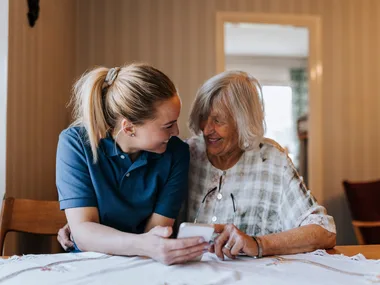
























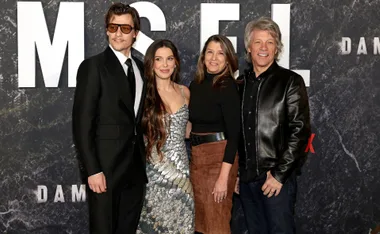

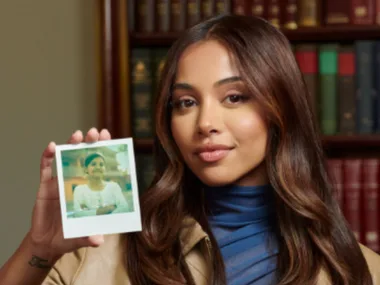
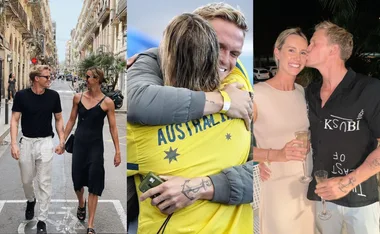
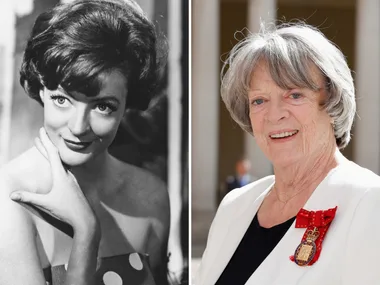

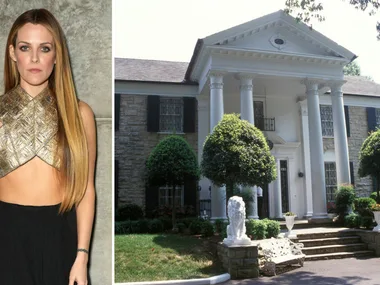
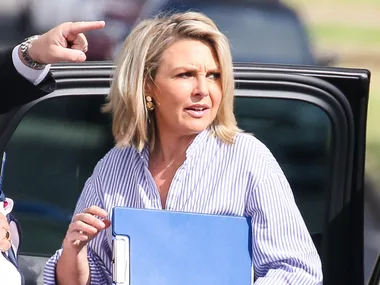
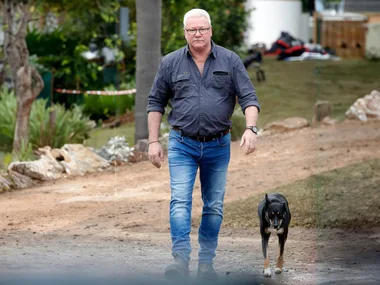



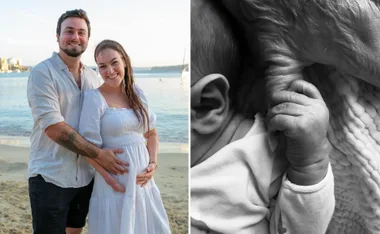
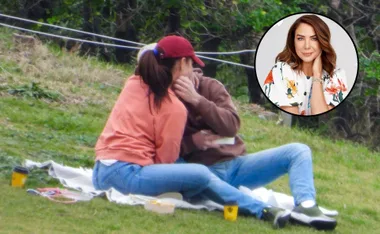
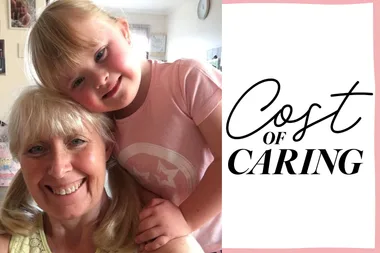
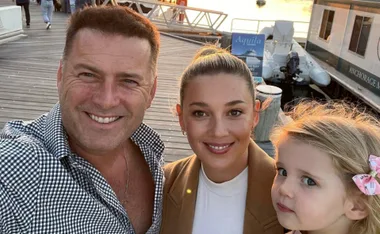
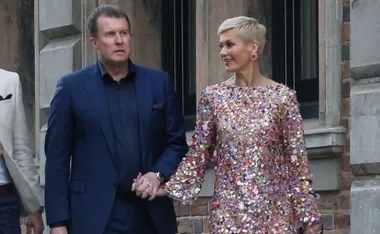
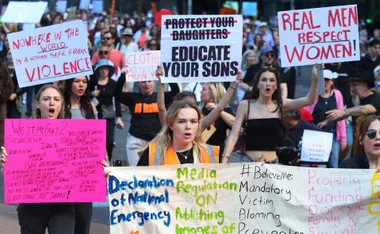
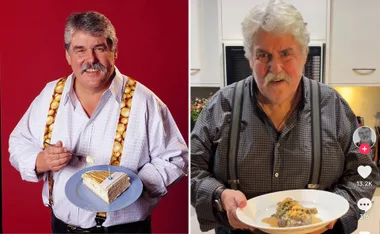










.jpg?resize=380%2C285)
